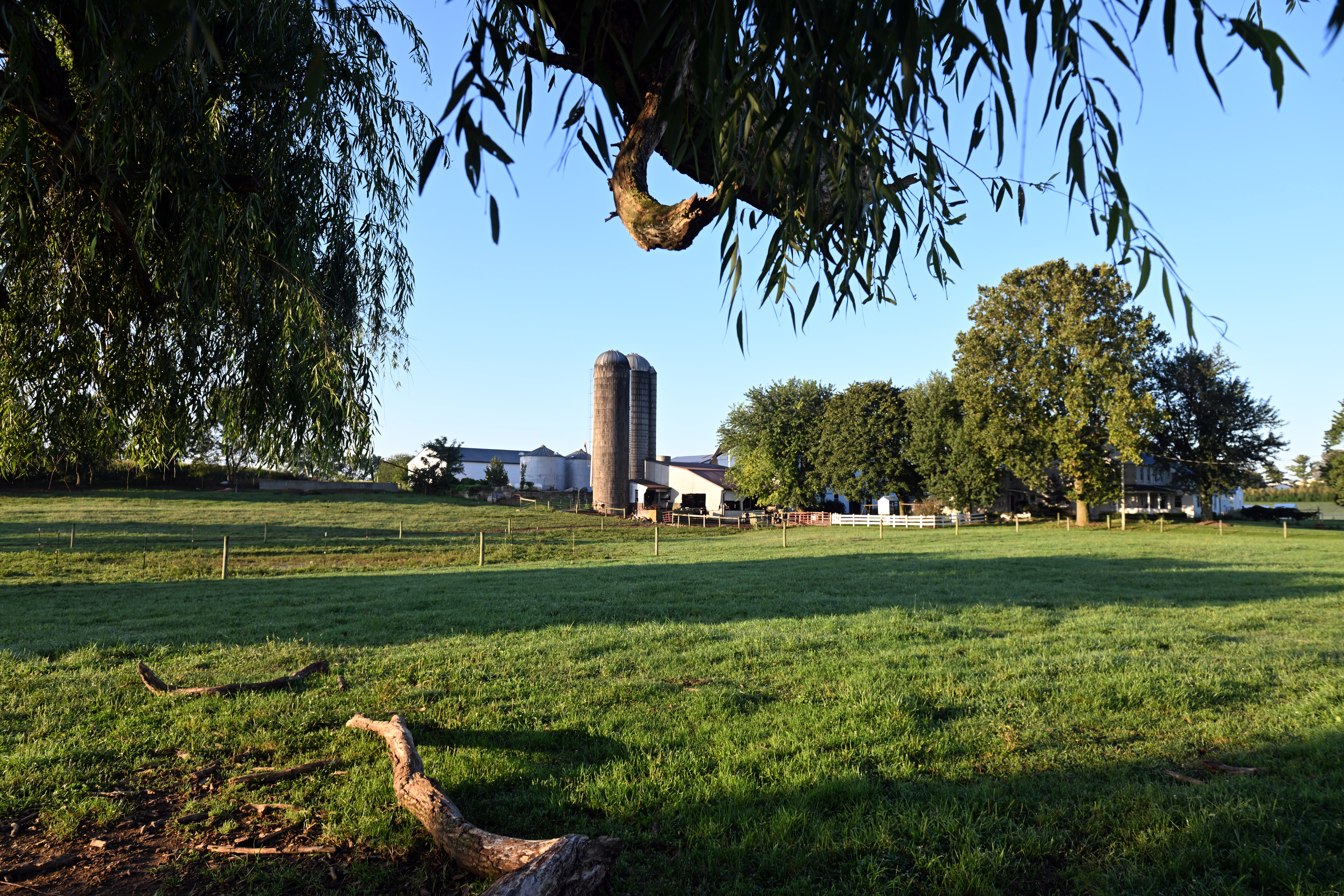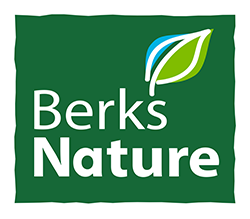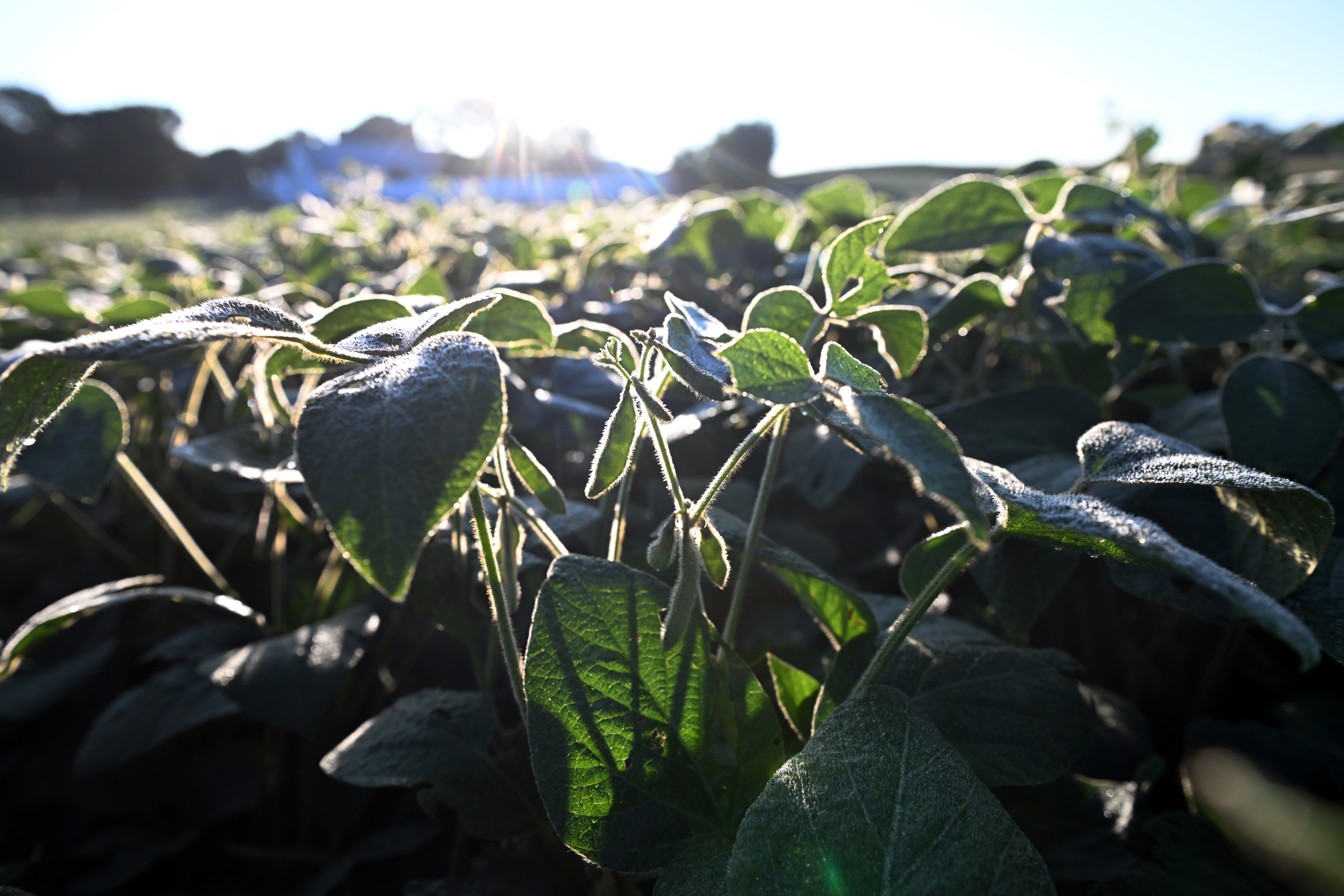Leon Burkholder extends his left hand, palm down, and holds out his right hand, palm up, a couple inches below it.
“Planting depth is here,” he says, explaining his no-till farming practices.
He increases the distance another foot or so between his hands.
“This is the difference,” he says. “Plowing depth is here.”
Leon has been an advocate of no-till farming and utilizing cover crops for a number of years.
“I just like the thought of planting cover crops and then not disturbing my soil,” he continues as the sun peeks up over the hillside of his 70-acre farm along Deysher Road in Maxatawny Township, just outside of Kutztown.
The Burkholders – Leon, his wife, Linda, and their two sons – raise 80 head of beef here and farm another 100 acres near Kempton for dairy.
He set aside some time “first thing in the morning” to talk with Berks Nature and go through some of the best management practices he’s been utilizing on his farm.
For Leon, first thing in the morning means just about daybreak.
He walks among his barns and outbuildings and outlines some of the construction that will be occurring later in the fall and early winter.
But first, he wants to emphasize how important his farming practices are to the soil health and the savings they provide in labor and inputs.
“I don’t have any ponding areas in my fields, really,” he says. “We’re only disturbing the top two inches; we’re not cutting off any earthworm cavities that go down. We’re not cutting them off, turning them around.”
Those cavities are always there to help infiltrate the water into the subsoil, he continues.
“If you plow it this deep and you turn everything upside down,” he says holding out his hands again over a foot apart, “you disturb all those cavities, so you have more ponding in your field.”
Leon is becoming a strong advocate for sustainability and soil health and is actively looking to implement emerging techniques to enhance his farm’s viability and impact.

View of Burkholder Farm in Berks County.
“With disturbing this much,” he says with his hands a few inches apart, “water will infiltrate and distribute nutrients a lot better.”
Another benefit of the no-till farming is a reduced need for chemicals and herbicides to be used on his crops.
Leon recalls how his father planted cover crops in the 1970s after buying the farm in the late 60s.
For some reason, planting cover crops fell out of favor after those years.
“You know the 70s were way back,” he laughs. “I was only 8 years old, but I just remember him planting rye and cover crops.”
Now, the Burkholders will double crop their fields with soybeans as soon as possible after they harvest wheat for grain. The family also grows barley and corn for cash crops.
“We haul some manure and then go in with no-till soybeans as a double crop for harvest in November, which is an excellent source of extra income for the farm that has worked for the last 15 years,” he says.
The Burkholders have found a valuable resource in the Stroud Water Research Center and have been working with the center on the soil health of the farmland.
Now, the Burkholders will double crop their fields, planting soybeans as soon as the space is available, following the spring harvest of wheat for grain. The family also grows barley and corn for cash crops.
“We haul some manure and then go in with no-till soybeans as a double crop for harvest in November, which is an excellent source of extra income for the farm that has worked for the last 15 years,” he says.
The Burkholders have found a valuable resource in Stroud Water Research Center, who are helping the Burkholders improve the health of their farmland’s soil.
Now in its third year, the Stroud Center’s Soil Health Transition Program incentivizes farmers to implement cover crops on more acres or enhance their cover crop program by planting covers earlier, harvesting them later by “planting green,” or increasing the number of cover crop species planted, according to the Stroud Center.
The Stroud Center has partnered with PASA Sustainable Agriculture to encourage Berks County farmers, including the Burkholders, to participate in their Soil Health Benchmarking program. Participating farmers are able to send soil samples from their fields to Cornell University’s well-respected soil health lab for extensive testing.
PASA then provides soil health results back to farmers, with reports which also compare their soil health “scores” with farmers from across the state. Leon notes that the Stroud Center is monitoring close to 20 acres of his land to see how the soil is reacting to the main crops, cover crops and manure management.
The Burkholders have participated in this program from its inception, and the Stroud Center notes five areas where his soil management excels:
- Keeping soil covered at all times with living and dead plant tissue protects the soil from erosion;
- Minimizing tillage with no-till planting reduces the physical disturbance of soil, supports microbial processes and builds organic matter;
- Diverse crop rotations increase the resiliency of the plant and soil system and may reduce the need for chemical inputs;
Cover crop roots release organic compounds called exudates that enrich the soil - Grazing animals and animal manures provide essential organic matter, nutrients, and other compounds that enhance carbon and nutrient cycles.
Since the Stroud Center is taking the lead on the testing, Leon doesn’t need to put much effort into the testing process but receives the benefits of the soil analysis, a fact that is a help on his busy farm.
The Burkholders’ overall farm and land management practices are spurring significant infrastructure changes, with construction beginning in late fall with financial and technical assistance from USDA NRCS, the Berks County Conservation District and Berks Nature.
Leon points out the upcoming changes as he walks among his farm buildings.
“We’re going to bury a water line here that will take all my roof water and bring it underground, so water won’t be running through areas where we load manure,” he says as he walks the path of the planned pipeline.
The line will take the water out to a retention pond in the pasture beyond.
“And there’s going to be a new manure storage building right here,” he says pointing to an area adjacent to his barn, “so we can get rid of the outdoor manure storage. That’ll be kept all inside under the roof, which will result in a cleaner water… because all this area is prone to runoff because it’s on a hillside.”
All of these changes will help with the improvement of the Saucony Creek watershed with implications for drinking water supplies in the middle Schuylkill River areas, notes Stroud Center Soil Health Coordinator Lisa Blazure, especially Kutztown and, further downstream, the City of Reading.
Wills Curley, the Stroud Center’s Watershed Restoration Project Coordinator who has overseen the project at the Burkholder farm, says, “Leon is becoming a strong advocate for sustainability and soil health and is actively looking to implement emerging techniques to enhance his farm’s viability and impact.”
“I guess for me,” Leon says with the rising sun illuminating the lush farmland, the crops covered with morning dew, “it’s just our way of life, trying to implement good stewardship of the soil.”

